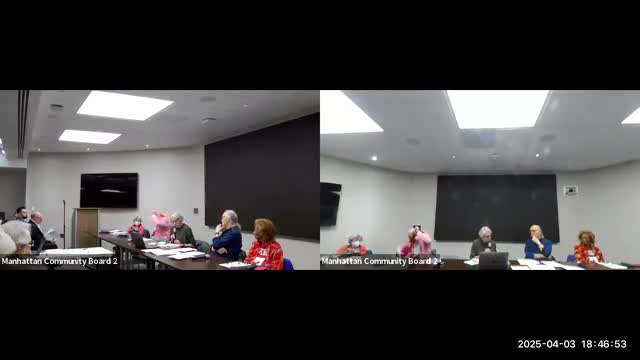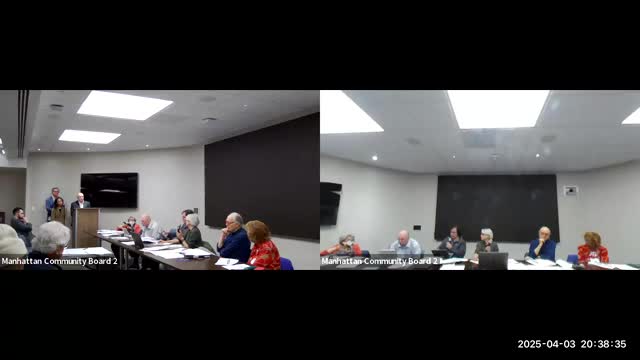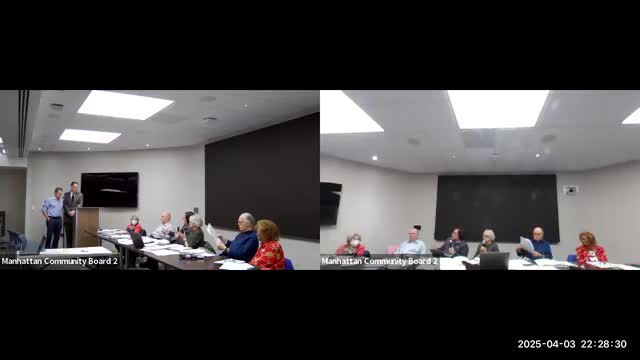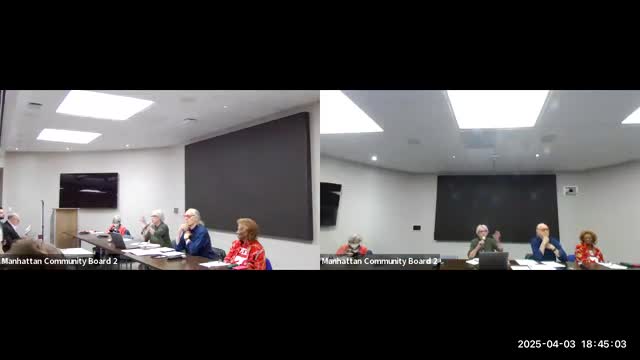Article not found
This article is no longer available. But don't worry—we've gathered other articles that discuss the same topic.

Leila Bar at 422 Hudson seeks earlier weekend opening; committee asks applicant to return on outdoor seating

Radiant Cafe in West Village draws large, split public turnout over beer-and-wine application

CB2 approves corporate change for Slice West Village; alteration on hold after resident complaints about vent noise and sidewalk congestion

